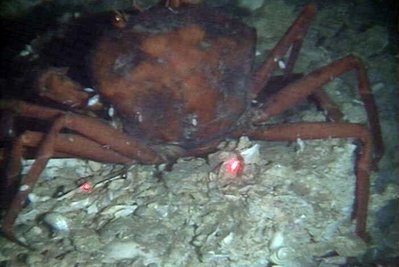
More bad news from the oil spill front. University of Georgia marine scientist Samantha Joye reporting findings from her fifth Gulf of Mexico expedition since the oil spill, noted the outlook is not optimistic. Her team found multiple expanses of oil and soot-covered seafloor chemically linked to the BP Macondo deep sea well. The soot likely derived from the burning of oil that settled to the bottom. In this blanket is a large number of dead brittle stars, crabs, and tubeworms. Keep in mind Joye’s team also warned about many studies overlooking the volume and impact of the 500,000 tons of methane also spilled into the Gulf.
I’ll leave you with this: “Apparently, the sheer quantity of sedimented oil, much of it trapped in a slimy mucilaginous matrix, simply overwhelmed and suffocated the sea floor microbial colonies that normally consume oil.”

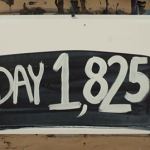
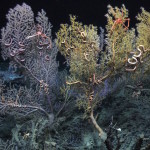
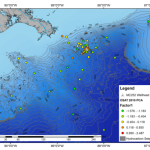
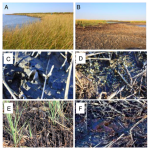

“Mucilaginous matrix”
Well, there goes my appetite for breakfast.
“Mucilaginous matrix” IS breakfast for many people… oatmeal, cheese grits, cream of wheat, porridge, tapioca pudding… Just sayin’
Hmmm… Cheese grits! Time for southern style breakfast! Though the thought of the carnage from the BP mess does kill the appetite… Maybe just coffee afterall.
So many people argue that environmental damage is a natural process, that the earth can absort immense damage and recover on its own. These same people miss the point when discussing environmental change. Change has occurred generally very slowly over long periods of time, and species had time to adapt. Because of human technological change, changes are occurring to quickly now for species adaptation. There is also a difference between change and pollution. Extinction is a natural occurrence, but not at the current rate, which threatens our own existence.
We, as a species have developed a civilization that is based on oil and its by-products. Oil is a non-renewable resource and its very production and uses are destructive to the environment that we as animals depend on for our basic survival.
We have also developed a very primitive social system based on favouring a few at the expense of the many. The rich have everything, the poor have nothing. We fail to control our population, so that eventually we reach the limits of our recourses and a collapse is inevitable.
In a nut shell, we have developed an environment that is unfit for human consumption, both on a technological and a social level, and it is rapidly catching up with us. Unfortunately, human ability to adapt to the necessary changes that are needed to save ourselves seem beyond our reach. We are simply to primitive an animal to think beyond our immediate needs.